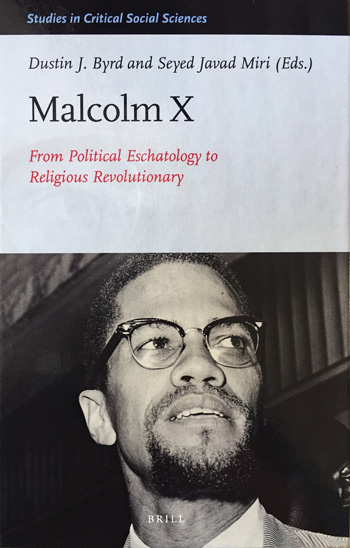
From Hell to Heaven: The Malcolm X Narrative of Muslim Artists
The Meaning of his Life in Relation to the Doctrine of Predestination for British and American Performing Artists in the 21st Century
Conscious Hip-Hop Malcolm X and his call for revolution, self-determination and defense against racial oppression inspired politically charged poets and musicians to create the group The Last Poets in 1968. Considering themselves the final artists who would take up words instead of guns against social injustice, they represent several of the founding fathers of the style of socially “conscious hip-hop” of socially committed (Black) MCs. In the late 1980s and early 1990s, especially with the 1992 release of Spike Lee’s film Malcolm X based on his autobiography (Malcolm X, 2001), a remarkable resurgence of interest in Malcolm Little, aka al-Hajj Malik al-Shabazz, was expressed in popular culture. Rap bands such as Public Enemy used him as a cultural and ideological icon in their work.
Reflection in Self-Definition In the 21st century, Malcolm’s name and penetrating voice still emerge in lyrics of American Muslim rap artists who often use samples of his speeches. But, is Malcolm X also meaningful for the new generation of Sunni Islam-oriented artists in hip-hop, and for their colleagues with various ethnic and religious backgrounds in the transnational field of Muslim performing artists in music, spoken word, comedy, and theater in the US and the UK? And, if so, how is Malcolm X reflected on in the practices and self-definitions of contemporary Muslim artists who try to synthesize their artistic aspirations with their religious beliefs? Distinguishing between the “style of militant power” and the “style of soft power” and focusing on conversion as the considered process of going “from darkness to light,” or “hell to heaven,” this chapter explores the current signification of Muslim human rights activist al-Hajj Malik al-Shabazz to Muslim performing artists. It uses the sociological perspectives of the field of art and the doctrine of predestination of, among others, Pierre Bourdieu and Max Weber in relation with the social analysis of narratives as ways to convey meaning.
Van Tilborgh, Y. “From Hell to Heaven: The Malcolm X Narrative of Muslim Artists. The Meaning of his Life in Relation to the Doctrine of Predestination for American and British Muslim Performing Artists in the 21st Century,” Malcolm X: From Political Eschatology to Religious Revolutionary, Dustin J. Byrd and Seyed Javad Miri (eds.) Leiden: Brill (2016) 273–320.
